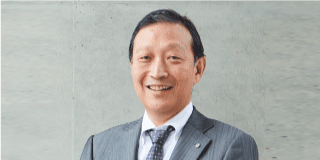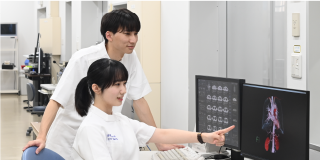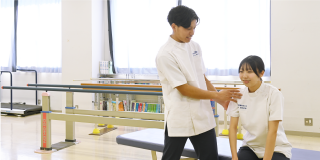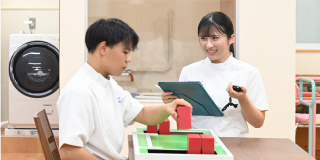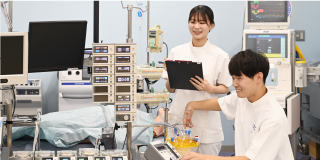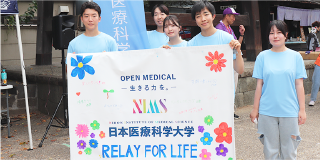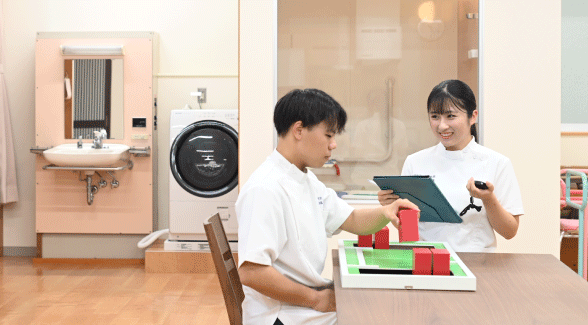
What Does an Occupational Therapist Do?
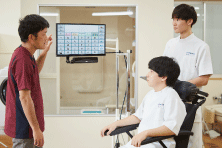
Occupational therapists are specialists in rehabilitation that is aimed mainly at helping patients who have or are expected to develop physical or mental disabilities function and perform in their daily lives. This encompasses treatment, instruction, and support to help patients with everything from daily movements and activities at home to applied functions for the workplace, school or play.

Real-World Needs
In response to Japan’s rapidly aging population, social security systems, including medical insurance and nursing care insurance, are being reformed and improved. As these changes advance, occupational therapy needs are emerging for patients of all ages, from seniors to children. The work of occupational therapists is thus wide-ranging and garnering a great deal of attention and visibility. It encompasses rehabilitation from the acute stage, in hospitals, to the recovery stage and the maintenance stage, performed mainly at home, as well as efforts to extend healthy life expectancy by preventing seniors from becoming bedridden or requiring nursing.
About the Department of Rehabilitation: Occupational Therapy Course
Occupational therapists have recently been in the spotlight due to their role in creating barrier-free spaces throughout society. Using an educational environment that includes the latest facilities and equipment, we train occupational therapists who can offer therapeutic approaches that address both the body and mind.
The Occupational Therapy Course covers multiple areas.
The physical disability area deals with functional impairments of the body, such as difficulty moving limbs due to a stroke or spinal injury. There are many examinations and tests that can be used to determine the functioning of, for example, the arms or legs. Occupational therapy students learn these along with therapeutic theory and technique that employs occupational activities in order to rehabilitate the body’s functions.
In the developmental disorder area, students learn about tests to evaluate the physical and mental development of children with such conditions as cerebral palsy or intellectual disabilities. In the rehabilitation of children, play activities are often used as a form of occupational therapy. Students learn therapeutic theory and techniques to help children develop and learn.
In the mental disorder area, students study methods to support the social adjustment of patients suffering from such disorders as schizophrenia, depression and substance dependence. Specifically, students learn a wide variety of methods to help patients develop and strengthen life skills, ranging from communication techniques to job skills.
In the age-related disability area, students study the relationships between declines in cognitive function and age-related declines in physical well-being, such as cerebrovascular disease and Parkinson’s disease, which are seen most often in the elderly. Students also learn the roles of occupational therapists in the support and nursing of elderly patients with dementia, a topic of growing concern and significance in Japan in recent years.
At the Nihon Institute of Medical Science, students learn both theory and practical techniques related to helping patients achieve and maintain independence. Teaching and training focus mainly on developing specialized skills to provide occupational therapy in the areas of physical disabilities, mental disorders, developmental disorders and age-related disabilities. The expertise of occupational therapists is wide-ranging. Recently, the concept of compensating (using medical and assistive devices to make up for bodily functions lost to illness or injury) has become more important. This is based partly on growing understanding of the effectiveness of using such devices as robotic arms, lifts or wheelchairs (collectively referred to assistive technologies, or AT) to assist patients in their living environments. At the Nihon Institute of Medical Science, we strive to equip future occupational therapists with the skills to implement support techniques that incorporate such devices.

